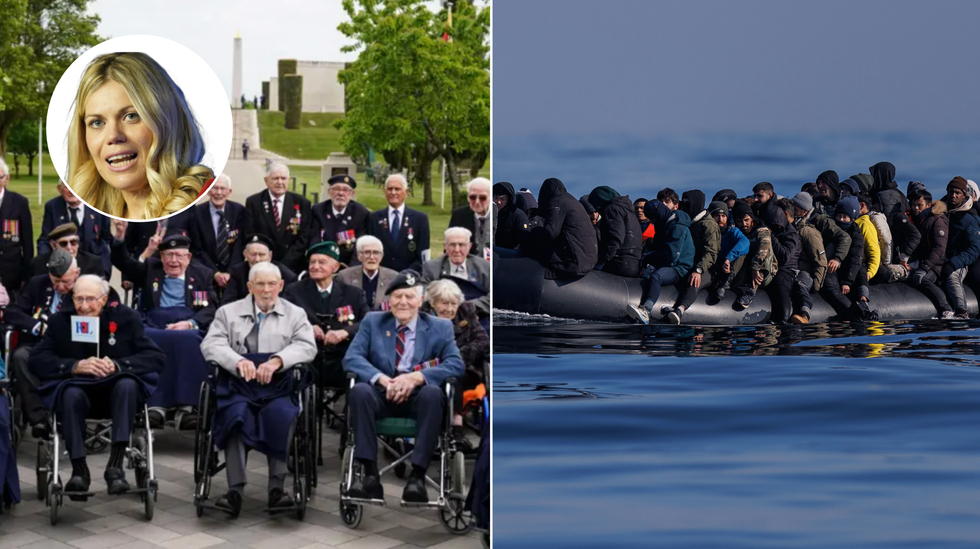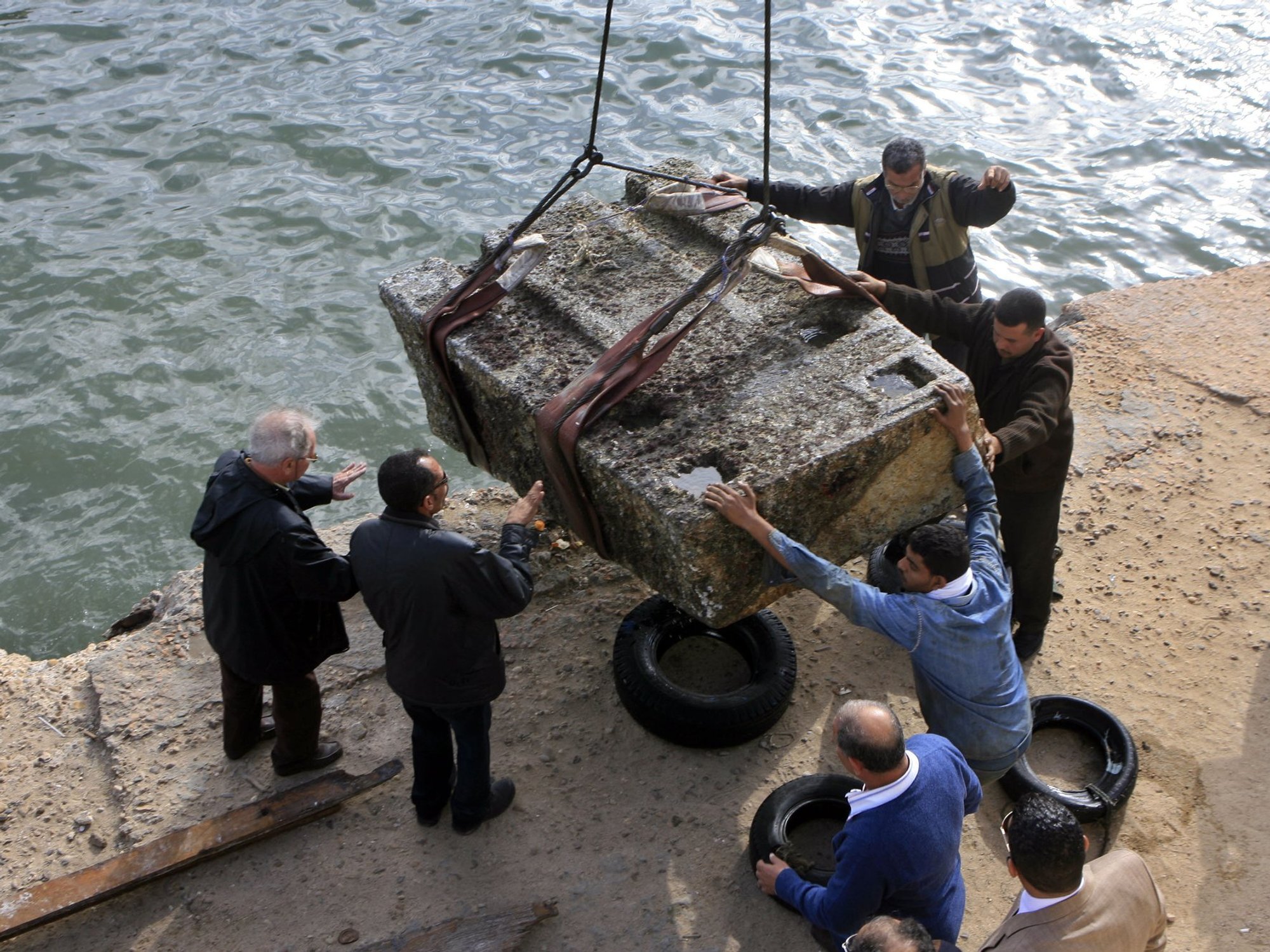We must ditch the post-war institutions eroding the very freedoms our veterans fought for - Miriam Cates
VE Day 80: Royal British Legion veteran delivers touching message - ‘Out of the darkness comes light’ |
OPINION: Eighty years on, the war and its consequences continue to shape our politics, economy, and culture
Don't Miss
Most Read
This week, Britain marked the 80th anniversary of Victory in Europe Day (VE Day) when, on the 8th of May 1945, German Admiral Karl Dönitz formally surrendered to the Allied forces and Nazi troops laid down their arms.
The commemorations across Britain and Europe have reminded us once again of the enormous sacrifices made by the wartime generation, especially the millions of servicemen and women who gave their lives to defeat tyranny and liberate our continent.
Iconic photographs and newsreels from 1945 have resurfaced, showing joyful crowds flooding the streets, embracing the long-awaited end of six harrowing years of war, grief, rationing and hardship. That moment of relief is something our generation can only imagine.
VE Day marked the end of the Second World War in Europe, but it also signalled the start of a new chapter in global history and the beginning of some shocking discoveries. Although rumours of Nazis atrocities had circulated during the War, it was only after the liberation of the concentration camps that the full horror of the Holocaust was truly grasped. Allied soldiers stood in shocked disbelief at what they uncovered.
In the immediate aftermath of VE Day, around eleven million Europeans were displaced. The task of returning soldiers, refugees and survivors to their homes took years. Cities and towns across the continent lay in ruins, ravaged by bombing and the street-to-street battles that had raged as Allied forces advanced on Berlin. Soon came the expansion of Soviet influence across Eastern Europe and the beginning of the Cold War.
VE Day was a moment of triumph, but life in Europe — and indeed across the world — would never be the same again. Even today, 80 years on, the war and its consequences continue to shape our politics, economy, and culture.
Take immigration, perhaps the most contentious and destabilising issue in British politics today. Prior to the Second World War, immigration levels to Britain were low. But in the post-war period, the country urgently needed to rebuild. With many young men still serving or lost to the war, the British government invited citizens from Commonwealth countries to aid in reconstruction. Thousands answered the call, especially from nations such as Jamaica and Pakistan.

VE Day was a moment of triumph and a reminder that life in Europe would never be the same - Miriam Cates
|Getty Images
Later, the European Union’s policy of free movement dramatically increased migration. When Eastern European countries like Poland and Romania joined the EU in 2004, migration surged. But why was the EU created in the first place? Founders of the original European Coal and Steel Community, which became the European Economic Community, then the European Union, wanted to encourage trade to prevent further European conflict.
But over time, this noble aim that began as economic cooperation evolved into political integration, challenging national sovereignty and stretching public consent for open borders to its limits.
And it wasn’t only legal immigration that surged. Post-war institutions designed to protect human rights have also made it impossible to tackle illegal immigration effectively. The European Convention on Human Rights, signed in 1950 in response to Nazi abuses, was a well-intentioned effort to curb the power of authoritarian regimes. But in the decades since, activist judges have expanded the provisions of the ECHR to bestow a tenuous definition of ‘human rights’ on even the most frivolous requests of hardened foreign criminals.
Who can forget the case of the Albanian criminal who avoided deportation because a court ruled that it was ‘unduly harsh’ to expect his son to tolerate the taste of foreign chicken nuggets. Or the case of the Pakistani man, arrested for sexually abusing a child, who couldn’t be deported because the judge said this would breach the U.K.’s obligations under Article 3 of the ECHR since “the appellant would face inhuman or degrading treatment on return to Pakistan as a result of a highly likely criminal prosecution.” Far from preventing exploitation, the ECHR is being actively used to exploit our legal system.
The Refugee Convention, signed in 1951 to manage the large number of post-war displaced persons, has also added to our government’s inability to remove illegal migrants. The UK’s Rwanda plan was struck down because, under the Refugee Convention, which forbids the return of asylum seekers to their home country, Rwanda was not deemed ‘safe’.
The institutions and conventions established after WWII were created with the best of intentions, but they inadvertently created many of the seemingly intractable challenges we face today.
The foundations of Europe’s 21st-century mass migration crisis were laid in the 1940s, and so were the roots of our creaking economic system. In 1944, as the war neared its close, Allied economists gathered at Bretton Woods to design a post-war financial order. They pegged global currencies to the US dollar, trusting in American economic strength to stabilise the world economy. It worked — for a while.
But as other countries recovered and trade deficits widened, the system collapsed. In 1971, President Nixon abandoned the dollar-gold standard, triggering decades of inflation, financial volatility, and asset bubbles. Before the 1970s, inflation in the UK had been historically low. Since then, we’ve suffered persistent price instability, from which has arisen today’s cost-of-living crisis and the enormous housing price bubble that is causing so much hardship for the young and the poor.
The post-war welfare state was also well-intentioned. The founding of the NHS, the state pension, and benefits for the unemployed reflected a sense that, having demanded total war effort from its citizens, our nation had a duty to offer security to all. But these models and institutions were not future-proof. When the state pension was introduced, life expectancy was 65. Today it is over 80.
That pension system has now become unaffordable, consuming half of our welfare budget and placing an ever-growing burden of taxation on the young. At the same time, the ‘outsourcing’ of elderly care to the state has diminished the sense of duty felt by families to care for their own relatives, something that has had devastating social as well as economic consequences.
Meanwhile, social security benefits intended as a safety net have too often become a trap. In some communities, the perverse incentives of the welfare system discourage work, encourage fraud and even penalise stable families. And the NHS — once a provider of limited, emergency care — is now expected to deliver every imaginable treatment, regardless of cost. Year on year, our expectations of the welfare state grow, yet its ability to provide for us diminishes as our demographic realities depart further and further from what its founders anticipated in 1945.
Foreign policy, too, bears the deep imprint of the Second World War. The loss of the British Empire, a condition of American support in the War, reduced British influence in the world. For decades, Britain and Europe have relied on the United States for security, thanks to American dominance and leadership in the 1940s. And tensions in the Middle East, particularly around Israel, are directly linked to post-war decisions. Israel’s creation in 1948 was a response to Jewish suffering in the Holocaust and the shameful failure of many nations to accept refugees during the war. While I strongly support Israel’s right to exist, we must acknowledge that many of the origins of today’s conflicts lie firmly in the post-war settlement.
It's tempting to look back on the Second World War with nostalgia. Certainly, as Britons, we have much of which to be proud: the mettle of our nation was tested during the Second World War and proven to be characterised by bravery, resourcefulness, perseverance and unity.
But the Second World War was an unprecedented tragedy for humanity, destroying lives, economies and upending centuries-old social and political settlements. And the legacy of the war lives on today.
If we want to solve the pressing problems facing Britain in 2025, we must recognise that the decisions made, agreements signed, and institutions created after the Second World War were well meant but are no longer fit for purpose. Reforming or leaving institutions like the ECHR, the Refugee Convention, or re-evaluating our place in international economic and security structures, will not be a betrayal of our history.
It is the only proper way to honour those who paid the ultimate price for Britain’s freedom, sovereignty and right to determine our own future.











